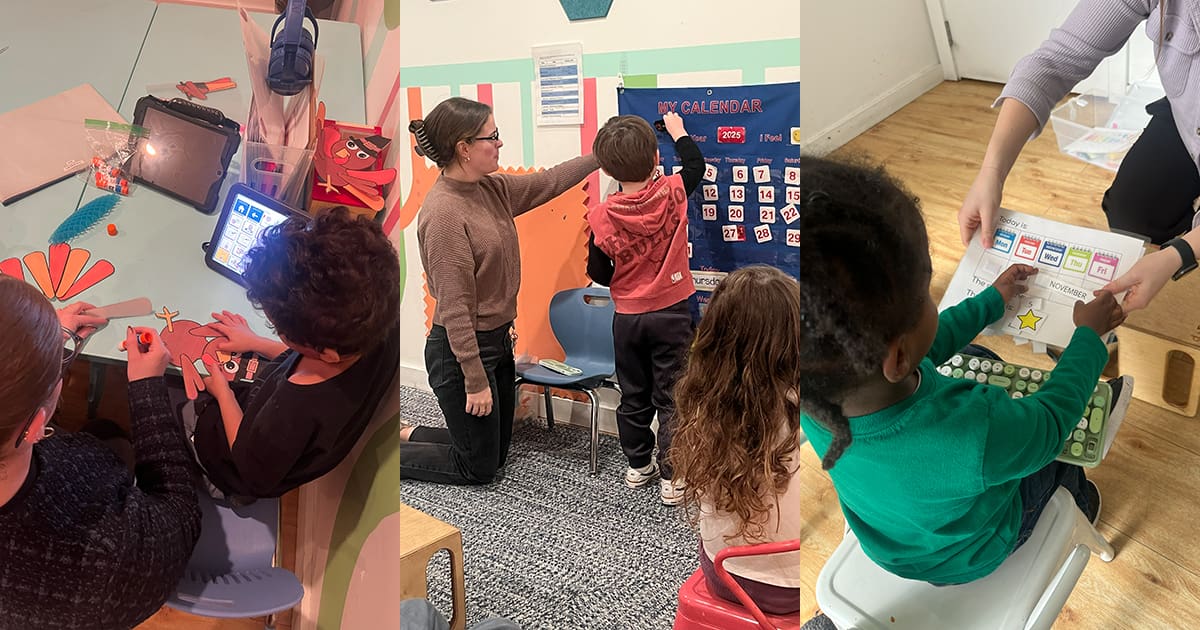Share this Post

Every child deserves care that supports their unique needs, builds on their strengths, and helps them reach their full potential. For children with autism or developmental delays, therapy can play a crucial role in their journey toward growth and success. But what happens when multiple areas of development—like speech, motor skills, or social interactions—need support? This is where multidisciplinary therapy shines.
Multidisciplinary therapy combines the expertise of different specialists, such as speech-language pathologists, occupational therapists, physical therapists, and behavioral specialists, to create a holistic approach to care. At CST Academy, we believe in the power of teamwork. Our collaborative approach ensures every child receives personalized, comprehensive support that addresses every facet of their development.
What Is Multidisciplinary Therapy?
Multidisciplinary therapy brings together professionals from various fields to address a child’s needs in an integrated and coordinated way. Instead of working in isolation, therapists collaborate to develop and deliver a cohesive plan that supports the child’s goals across multiple domains.
For example:
- A speech therapist might work on verbal communication while collaborating with an occupational therapist to address sensory needs that affect the child’s ability to focus during sessions.
- A physical therapist may focus on gross motor skills while consulting with a behavioral therapist to integrate strategies that encourage participation.
This collaborative approach ensures that every therapy session builds on the progress made in other areas, creating a seamless experience for both the child and their family.
Key Advantages of Multidisciplinary Therapy
- Holistic Support for the Whole Child
Children’s developmental needs often overlap. For instance, improving fine motor skills can help with writing and communication, while managing sensory sensitivities can improve focus during speech therapy. Multidisciplinary therapy ensures that every aspect of a child’s development is supported simultaneously. - Improved Communication Between Specialists
Collaboration between therapists allows for real-time adjustments to therapy plans based on a child’s progress. This ensures consistency and maximizes the effectiveness of each session. - Tailored, Individualized Care
With input from multiple specialists, therapy plans are highly personalized to address each child’s unique challenges and goals, resulting in faster and more meaningful progress. - Enhanced Skill Generalization
Skills learned in one area, such as turn-taking in speech therapy, are reinforced and applied across other settings, like occupational therapy or group activities. - Reduced Stress for Families
Families benefit from a centralized, coordinated approach, reducing the need to navigate multiple therapy providers independently. At CST Academy, all therapies are delivered under one roof, simplifying the process for parents.
How CST Academy Implements Multidisciplinary Therapy
At CST Academy, we are proud to lead the way in providing comprehensive care that empowers children and supports families. Our multidisciplinary team collaborates seamlessly to ensure that each child’s unique needs are met with compassion, expertise, and creativity.
1. Comprehensive Assessments
The journey begins with a detailed assessment involving input from all relevant specialists. This evaluation helps identify the child’s strengths, challenges, and goals across multiple developmental domains.
Areas of Assessment Include:
- Communication and language skills.
- Fine and gross motor abilities.
- Sensory processing and regulation.
- Social skills and behavior.
2. Collaborative Goal Setting
After the assessment, our team works together to develop a unified therapy plan. Goals are designed to address the child’s developmental priorities in a way that is realistic, measurable, and achievable.
3. Integrated Therapy Sessions
Our therapists often work together during sessions to address overlapping goals. For example:
- A child may work on speech articulation during a movement-based activity led by both a speech therapist and occupational therapist.
- Behavioral strategies may be integrated into a sensory activity to promote emotional regulation and engagement.
4. Ongoing Progress Monitoring
Regular team meetings ensure that all therapists are aligned on the child’s progress. Adjustments are made to the therapy plan as needed, ensuring that interventions remain effective and relevant.
5. Parent Involvement and Education
We believe that parents are essential partners in their child’s success. At CST Academy, we provide parents with regular updates, training sessions, and practical tips for reinforcing therapy goals at home.
The Impact of Multidisciplinary Therapy on Children’s Lives
The benefits of multidisciplinary therapy extend far beyond the therapy room. Here are some of the ways it transforms children’s lives:
- Improved Communication Skills:
Children gain the tools they need to express themselves more effectively, fostering stronger connections with family and peers. - Increased Independence:
By addressing a wide range of developmental needs, children build the skills necessary for greater self-reliance in daily activities. - Enhanced Confidence:
Mastering new skills boosts children’s self-esteem, encouraging them to explore and engage with the world around them. - Stronger Social Connections:
Multidisciplinary therapy supports the development of social skills, helping children build meaningful relationships. - Better Preparedness for School:
With progress across multiple domains, children are better equipped to succeed in academic and social settings.
Why Families Choose CST Academy
Families trust CST Academy because of our commitment to providing the highest quality of care in a compassionate, supportive environment. Here’s what sets us apart:
- Expert Team: Our therapists are highly trained and experienced in working with children with autism and developmental delays.
- Collaborative Approach: We prioritize teamwork and open communication to ensure every child’s needs are met.
- Inclusive Environment: Our sensory-friendly classrooms and therapy spaces are designed to make children feel safe and supported.
- Convenience for Families: With all therapies provided under one roof, families enjoy a streamlined, stress-free experience.
A Parent’s Perspective on CST Academy
“When we started at CST Academy, we were overwhelmed with all the areas where our son needed support—speech, motor skills, and even sensory sensitivities. The team at CST Academy made everything feel manageable. They worked together to create a plan that addressed all his needs, and we’ve seen amazing progress. Our son is happier, more confident, and thriving in ways we never thought possible.”
Take the First Step Toward Comprehensive Care
Multidisciplinary therapy is more than just a combination of services—it’s a transformative approach that empowers children to reach their full potential. At CST Academy, we are here to support your child’s unique journey with expert care, compassionate guidance, and a commitment to their success.
Contact us today to learn more about our multidisciplinary therapy programs and how we can help your child thrive.
Discover Our Pediatric Therapy & Autism Care
ABA Therapy
Support for children with autism.
Autism Evaluation
Expert assessments to identify child needs.
Pediatric Therapy Services
Speech, Occupational, Feeding, and Physical Therapy.
Therapeutic Preschool
A classroom environment designed for early learners with unique needs.

Find the Best Care for Your Child




